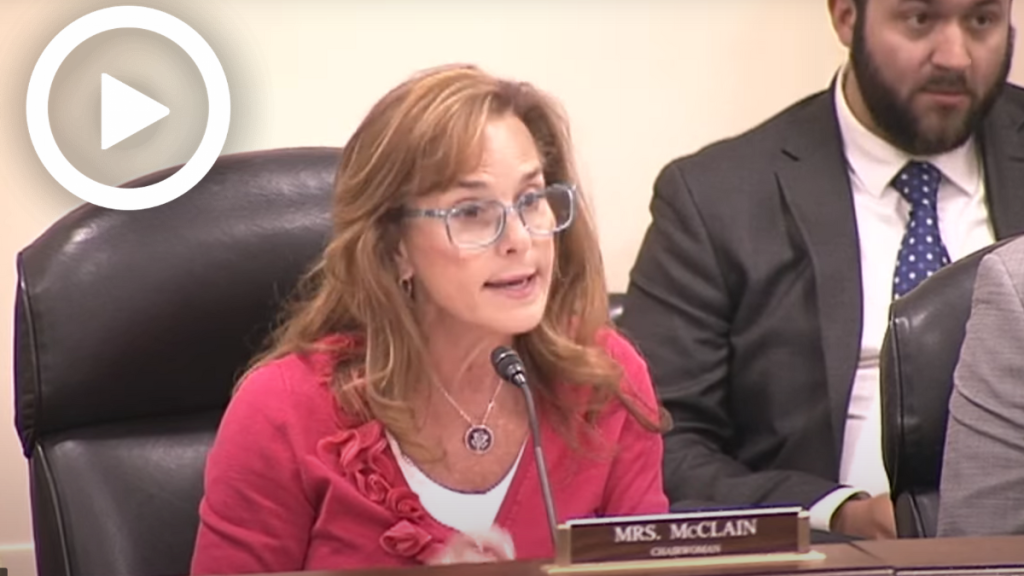McClain: FDA Must Use Existing Authorities to Regulate Hemp-Derived Products
WASHINGTON—Subcommittee on Health Care and Financial Services Chairwoman Lisa McClain (R-Mich.) opened today’s hearing titled “Hemp in the Modern World: The Yearslong Wait for FDA Action” by discussing the failures of the Food and Drug Administration (FDA) to regulate hemp products. Instead, the FDA is asking Congress for more regulatory authority which has led to uncertainty in the market. Chairwoman McClain urged the FDA to use its existing authority to do its job to regulate hemp-derived products so that Americans can be confident in the safety and efficacy of products they purchase.
Below are Subcommittee Chairwoman McClain’s remarks as prepared.
I want to welcome everyone to today’s hearing.
We are here yet again to discuss the failures of the Food and Drug Administration.
Earlier this year, this subcommittee learned how failures at the FDA led to the infant formula crisis.
Now, we’re learning about the FDA’s failure to regulate hemp products.
In both cases, the FDA’s actions – or lack thereof – have hurt families and children.
The growth and sale of hemp and hemp-derived products, including CBD, was legalized in the 2018 Farm Bill.
CBD was also removed from Schedule I status, which are drugs that have no currently accepted medical use and a high potential for abuse.
It makes sense to remove CBD from Schedule I Status.
We know that CBD can have a medical use because the FDA approved a prescription CBD drug that is used to treat children with severe forms of epilepsy.
We also know that pure CBD does not have a high potential for abuse and cannot cause a “high” because it’s not intoxicating.
However, if you buy a CBD consumer product off the shelf today, in many cases there’s no way for the average consumer to verify its purity or even the amount of CBD in it, or rely on FDA’s enforcement of regulations.
In fact, one study that tested almost 3,000 CBD products showed that only one-quarter of brands test their CBD products for purity and only sixteen percent of products tested contained exclusively what was stated on their labels.
That’s because FDA hasn’t regulated CBD as a dietary supplement or food additive in the five years since hemp was legalized.
It’s also common for CBD products to contain contaminants like heavy metals, mold, and THC, which is the intoxicating chemical in the cannabis plant.
The widespread usage of CBD products that contain other unknown contaminants has led to children accidentally ingesting and overdosing on THC.
This could be fixed if the FDA did its job and regulated CBD as a dietary supplement.
That would mean the FDA would have the enforcement authority to enforce labeling requirements and keep Americans safe and healthy.
But instead of regulating hemp-derived products under its currently existing authorities, the FDA announced earlier this year that it needs a new regulatory framework for hemp and CBD.
Translation: Give us more authority, more money, more staff, and only then will we actually do our duties under the law.
The FDA is already receiving 6.7 billion dollars a year for its 18,000 employees and yet it still wants more.
This announcement has led to confusion and uncertainty in the market, which has suppressed the ability for good faith manufacturers to sell CBD products.
It only benefits bad actors who capitalize on the confusion and flood the market with potentially unsafe products.
The FDA must do better and use their already existing authorities to regulate hemp-derived products.
